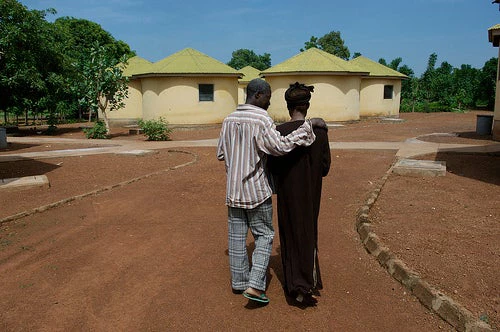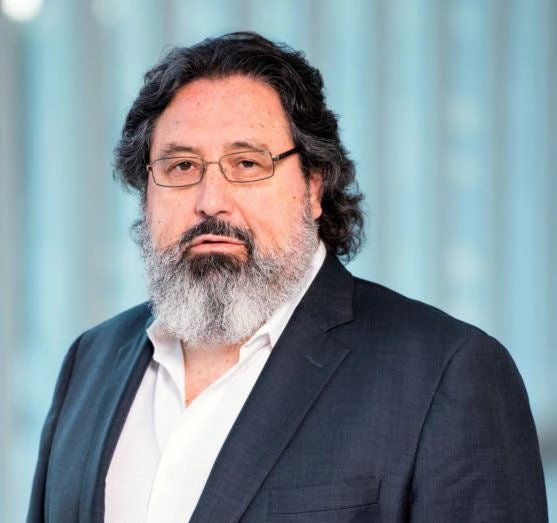Nowadays there is an awakening of interest in the international community to understand mental illness in its different manifestations and societal impact, and to identify ways to effectively deal with these often misunderstood, neglected and stigmatized conditions.
This is not a new phenomenon. Throughout history, mental illness has been the subject of different interpretations and approaches to treatment. In his seminal book, “Madness and Civilization: A History of Insanity in the Age of Reason,” French philosopher Michel Foucault examined the changing meaning of “madness” in different epochs and described how, in the mid-17th century, with the adoption of a conceptual distinction between rational and irrational behavior, those deemed “mad” began to be separated from society by confining them, along with other outcasts, in newly created institutions all over Europe.
Irrational behavior was seen as “moral error,” with individuals having freely chosen “unreason.” The “treatment” regimes of these new institutions were programs of punishment and reward aimed at causing these persons to reverse their “choice.”
At the end of the 18th century, with the creation of asylums – places devoted solely to the confinement of the “mad” for the protection of society– “madness” became a mental illness to be studied and cured under the supervision of medical doctors at an institutional setting.
Unfortunately, in the second decade of the 21st century, not much has changed in many countries regarding how society views and deals with mental illness. As noted in the World Health Organization (WHO)’s “Mental Health Action Plan 2013-2020,” homelessness and inappropriate incarceration are far more common for people with mental disorders than for the general population, and this tends to exacerbate their marginalization and vulnerability.
The time has come to accept that mental health is an integral part of health and societal well-being, particularly given the growing relative importance of mental and substance use disorders which are heavily influenced by socio-economic, biological and environmental factors, and which, as such, deserve sustained multisectoral action.
The 2010 Global Burden of Disease study showed that mental and substance use disorders – including depression, anxiety, schizophrenia, and drug and alcohol abuse – are already the fifth-leading cause of overall disease burden, accounting for 7.4% of total years lost due to illness, disability and early death.
Since mental health issues cause the most disability in ages 9 through 29, they exert a strong negative effect on human capital development and productivity in a society. At the same time, more than 20% of adults aged 60 and over suffer from a mental or neurological disorder, a problem that stands to grow in magnitude with the aging of the global population. Mental disorders tend to be more acute and often unattended in post-conflict countries where vast segments of the population have lived through long periods of armed conflict and ethnic confrontations. Many have been the subject of harassment, sexual abuse and rape, incarceration, and torture.
WHO’s “Mental Health Action Plan 2013-2020” highlights a number of evidence-based, intersectoral strategies and interventions to promote, protect and restore mental health, beyond the institutionalization approaches of the past that often confined people to oblivion. These include government-led policies, investments, and programmatic actions, coupled with the active participation of private sector businesses and civil society to create living conditions and environments that support mental health and allow people to adopt and maintain healthy lifestyles.
These interventions span the life cycle and include early childhood interventions, such as pre-school psychosocial, health and nutrition activities that target disadvantaged populations; socio-economic empowerment of women to help overcome gender inequality; and social support for elderly to alleviate the consequences of dementia.
The Action Plan also recommends mental health interventions in the workplace, including support to help overcome stress caused by work-family imbalances and substance abuse disorders; violence prevention programs, including domestic violence; fiscal and regulatory measures such as taxation of alcoholic beverages and restriction of their availability and marketing; social protection for the poor; anti-discrimination laws and campaigns; and promotion of the rights, opportunities and care of individuals with mental disorders.
The global movement toward universal health coverage by 2030, advocated by World Bank President Dr. Jim Kim and WHO Director-General Dr. Margaret Chan during the 2014 IMF/World Bank Spring Meetings, will also be catalytic to effectively implement mental health care and treatment policies and programs as part of comprehensive and integrated efforts to facilitate access to quality medical and social care services.
UHC efforts can help to address community-level needs of persons with defined mental disorders and offer financial protection by covering mental health and substance use disorder services, including medicines, under health insurance and other risk-pooling arrangements. This was recently implemented in the United States under the Affordable Care Act, and is proposed in Ghana under Mental Health Act 846.
The World Bank, as a multisectoral institution, has a major role to play in supporting national and international agencies to implement the WHO Mental Health Action Plan approved by governments at the 2013 World Health Assembly.
In particular, Bank support could be critical to help adapt the Action Plan to specific national circumstances and to offer “entry points” to advance healthy population initiatives during the preparation of country partnership strategies, conduct needs assessments, and in the design of policies, programs and projects in different sectors.
In moving forward with a broad social agenda to address mental health needs, we need to be guided by Thomas Jefferson’s wise words: “Happiness is not being pained in body or troubled in mind.”
Follow the World Bank health team on Twitter: @worldbankhealth
Related:
Mental Health and the Global Burden of Disease Study 2010: The Lancet Animated Infographic
How does Africa fare? Findings from the Global Burden of Disease Study
Mental Health Action Plan 2013-2020” by WHO
Healthier Workplaces = Healthy Profits



Join the Conversation